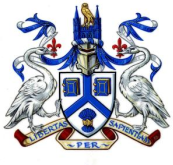
|
|
|
Preliminary Programme
Session Timing
September 9
O8.00-15.00 Registration
O9.00-09.15 Welcome
O9.15-10.00 Keynote Speaker
10.00-10.30 Coffee Break
10.30-12.30 Session
12.30-13.30 Lunch
13.30-15.00 Tutorial
15.00-15.30 Coffee Break
15.30-17.30 Session
17.30 Free Evening
September 10
O9.00-15.00 Registration
O9.00-10.00 Invited Speaker
10.00-10.30 Coffee Break
10.30-12.30 Session
12.30-13.30 Lunch
13.30-14.30 Invited Speaker
14.30-15.00 Coffee Break
15.00-17.30 Session
19.00-22.00 Conference Dinner
September 11
O9.00-10.00 Registration
O9.00-10.00 Session / Workshop Part 1
10.00-10.30 Coffee Break
10.30-12.30 Session / Workshop Part 2
12.30-12.45 Closing Session
12.45-13.30 Lunch
13.30-15.00 Workshop Part 3
15.00-15.30 Coffee Break
15.30-17.30 Workshop Part 4
KEYNOTE
GAME_KEY
AI and Games: Using All the Tools in the Toolbox
Richard Bartle, University of Essex, Colchester, United Kingdom
INVITED
INV_01
Challenges and Opportunities of Developing for the HTML5 Platform
Ewan Lamont, Legendary Games, Nottingham, United Kingdom
INV_02
Can we and should we automatically design games? Which and how?
Julian Togelius, IT University of Copenhagen, Copenhagen Denmark
TUTORIAL
TUT_01
Gesture Recognition and Control using Microsoft Kinect
John C. Murray, University of Lincoln, Lincoln, United Kingdom
WORKSHOP
WORK_01
Game Development Methodology -Agent Oriented Agile Based (AOAB) Workshop
Aladdin Ayesh and Rula al-Azawi, De Montfort University, Leicester, United Kingdom
SESSIONS
GAME HEURISTICS
GAME_DES_05
VOX POPULI - A Case Study of User Comments on Contemporary Video Games in Relation to Video Game Heuristics
Björn Strååt and Harko Verhagen, Stockholm University, Stockholm, Sweden
GAME_DES_01
Motivation-driven Rehabilitative Game Design Principles: A Literature Review Study
Aung Pyae, Mika Luimula and Jouni Smed, Turku University of Applied Sciences and University of Turku, Turku, Finland
GAME_DES_07
An Investigation into the use of a Gamified Revision Solution for Primary School Mathematics and its Experimental Comparison to Traditional Revision Methods
Tom Pendle, University of Lincoln, Lincoln, United Kingdom
GAME_SER_01
Playing with Science: Gamised Aspects of Gamification found on the Online Citizen Science Project - ZOONIVERSE
Anita Greenhill, Kate Holmes, Chris Lintott, Brooke Simmons, Karen Masters, Joe Cox and Gary Graham, The University of Manchester Business School, Manchester, United Kingdom
GAME_METH_01
How Social Gaming uses Optionalism as an Illusion for Gameplay
Arnè Übelhör, University of Lincoln, Lincoln, United Kingdom
IN GAME SIMULATION
GAME_SIM_01
Utilisation of Video Game Physics Techniques in Real Time Simulation of the Wheel Rail Interface for Predicted Derailment of Rail Vehicles
Michael Simpson, William Blewitt, Gary Ushaw and Graham Morgan, Newcastle University, Newcastle-upon-Tyne, United Kingdom
GAME_TRAIN_SER_01
Game Mechanics of 3D Simulation for Surgery Training Suite
Anton Ivaschenko and Andrey Kuzmin, Samara State Aerospace University, Samara, Russia and Anton Skolznev, Magenta Technology, London, United Kingdom
GAME PROGRAMMING
GAME_SER_02
A Proposal to Program Contents for Teaching Children from 0 to 12 Years the Basics of Programming
Laura L. Dias, Alex F. V. Machado, Lindomar M. de Paulo and Euler R. Q. de Alvarenga, Instituto Federal de Educação, Ciência e Tecnologia do Sudeste de
Minas Gerais - Rio Pomba, MG, Brazil
GAME_AI_05
Teaching Intelligent Virtual Agents Programming through Simulated Children Games
Jakub Gemrot, Martin Cerny and Cyril Brom, Charles University in Prague, Prague, Czech Republic
GAME_SER_05
A Communication Tool to Support Caretaking of Senior Citizens
Rajeeka Ponrasa, Teemu Jääskeläinen, Hannu Raappana, Wang Jizhe, Eeva Leinonen and Petri Pulli, University of Oulu, Oulu, Finland
GAME AI
GAME_AI_02
Semantic Structures for RTS Army Prediction
Andreas Stiegler, Stuttgart Media University, Stuttgart, Germany, and Daniel Livingstone, Glasgow School of Art, Glasgow, United Kingdom
GAME_SER_04
Region Load Management and Architecture Bottleneck Detection for the Alfil Crowd Simulation Virtual Environment
Cesar Garcia-Garcia, Victor Larios-Rosillo and Herve Luga, Universidad de Guadalajara, Mexico
GAME_AI_01
Implementing Racing AI using Q-Learning and Steering Behaviours
Blair P. Trusler and Christopher Child, City University London, London, United Kingdom
GAME LAYOUT DESIGN
GAME_DES_08_AI
Developing Player Movement Design Patterns in Multiplayer Video Games
Richard Lannigan, University of Lincoln, Lincoln, United Kingdom
GAME_AI_06
Procedural Generation of Race Tracks in an Open Source Racing Game
Jordan Blake and Dr Grzegorz Cielniak, University of Lincoln, Lincoln, United Kingdom
STORY TELLING
GAME_STORY_02_AI
Procedural Story Generation in Games
Kieran Wagg and Grzegorz Cielniak, University of Lincoln, Lincoln, United Kingdom
GAME_STORY_01
A Digital Approach to Storytelling with MOGRE
Paul Sampao, Salvador University – UNIFACS, Salvador, Brazil
GAME PERIPHERALS DESIGN
GAME_DES_02
Development of a Game with KINECT for the Inclusion of Visually Impaired
Paulo Roberto C. Faustino Matheus M. Ramalho Gabriel B. S. M. Moreira Alex F. V. Machado Lucas D. Silva Instituto Federal do Sudeste de Minas Gerais, Brazil
GAME_DES_03
Game Design for Tablets – Practice Based Research Methodology
Uttam Kokil, De Monfort University, Leicester, United Kingdom
GAME HARDWARE PROGRAMMING
GAME_HARD_01
Performance Variations in Emulated GPGPU Kernels
Eric Nilsson, Blekinge Institute of Technology, Karlskrona, Sweden
SPEC_01
Accelerating Graphics in Virtual Platforms
Eric Nilsson, Blekinge Institute of Technology, Karlskrona, Sweden












